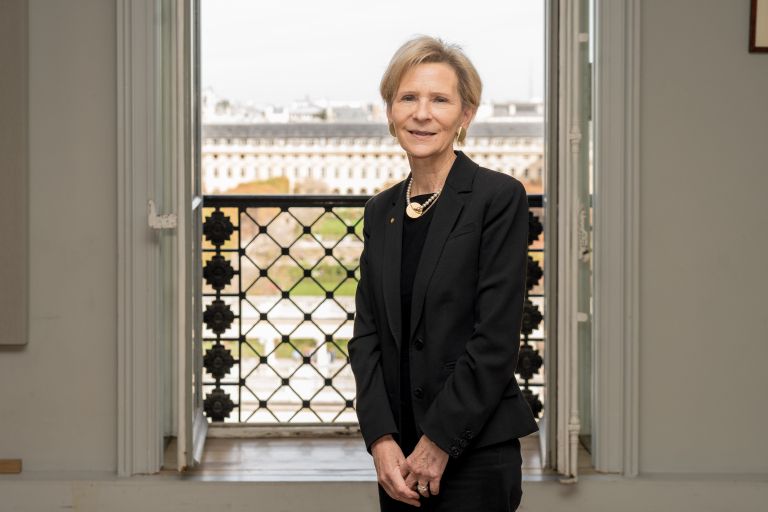On 27 and 28 October 2022, the Council of State hosted the Swiss Federal Court as part of the institution's ongoing dialogue with its European counterparts.
Within the framework of the working seminar, the French and Swiss delegations debated three major contemporary issues, which constitute significant challenges to the judicial system: social networks, i.e. the subject of the annual study 2022 of the Council of State, climate justice and justice during the pandemic.
Led by Martha Niquille, President of the Swiss Federal Court, the delegation was composed of Yves Donzallaz, Vice-President, François Chaix, Judge, and Nicolas Lüscher, Secretary General.
The Swiss Federal Supreme Court The Swiss Federal Supreme Court is the third highest authority in the Swiss Confederation, and the supreme judicial authority of that state. Composed of seven "courts", it rules in the final instance in civil, criminal, administrative and constitutional matters. Its central position within Swiss institutions enables it to ensure the uniform application of federal law in the twenty-six Swiss cantons and to guarantee the protection of citizens' constitutional rights. |
Two questions to Martha Niquille, President of the Swiss Federal Court:

Switzerland is considering regulating social networks to protect its users. What is the state of Swiss law in this area and what and what are the options for reform ?
Martha Niquille: Switzerland does not have yet a specific body of law regarding social networks. In 2017, our Federal Council replied, following a parliamentary interpellation, that there was no need to legislate on the criminal liability of social network platforms and that doing so would constitute a restriction of fundamental rights. However, there are still avenues for reform in this area. I am thinking in particular of the report published by the Federal Office of Communications last November, which addresses three major issues: the question of illegal and harmful content such as hate speech, disinformation and the deletion of content pursuant to non-transparent rules. But this is only a study. In parallel, the Office has also launched a call for projects to support research on these issues. Six research programmes are now being funded to establish a better picture of the situation.
The French Council of State's annual study on social networks concludes that the European level is the right one to regulate and govern social networks effectively. What do you think, considering that Switzerland is not subject to EU law?
M.N.: The Internet giants have reached an international level, as have the issues they raise. The power of these companies is so great that they need a regulatory actor of their size on the other side. And this is a real challenge for Switzerland. Although we are not a member of the European Union, we examine its regulations to identify what can be adapted to our situation. European legislation such as the Digital Services Act or the Digital Market Act has an impact on us, because even if we are not directly involved in their drafting, we are indirectly influenced by these reforms.

